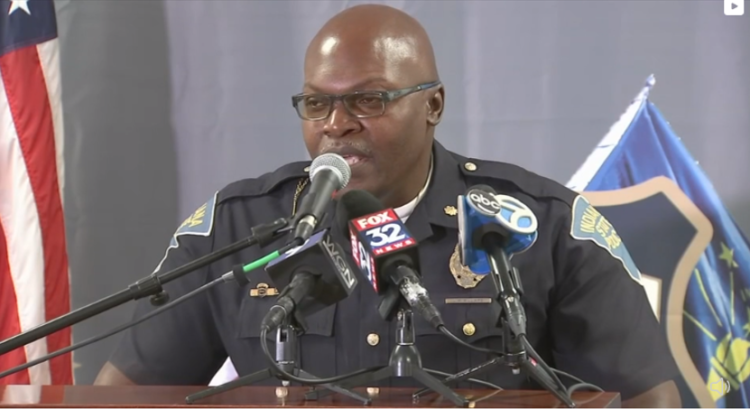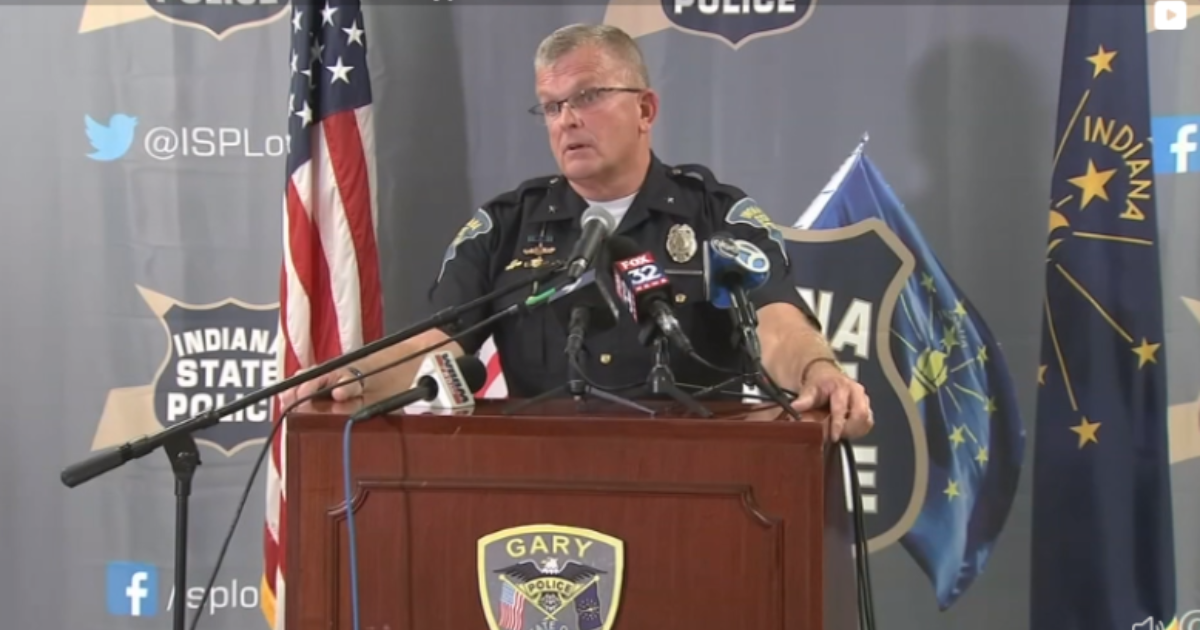“Money and manpower won’t solve the problems inside the Gary PD,” Indiana State Police Supt. Doug Carter noted at Monday’s (September 12) press conference, held in response to last week’s Gary City Council Public Safety Committee hearing.
Supt. Carter left that meeting on September 7th with the observation, “I don’t see things going in a positive way.” Since the day in April when Mayor Jerome Prince announced the partnership with the State Police to help improve his city’s police department, an ISP task force has studied police operations and recommended changes.
The 15 proposals amending current police policies and two new policies requested by the ISP task force need City Council approval and are currently being reviewed in the City Council’s public safety committee.
Two public safety committee hearings have been held, the first on August 31 and the second on September 7. During last week’s committee hearing, Council president William Godwin summarized the work of the task force as “majoring in the minors and overkill.” Councilman Godwin said, “This doesn’t solve anything. What we need is more pay for our officers. We need a grant writing team for our department that can go out and pursue federal dollars for equipment and training. I don’t think this has been well thought out. It’s a waste of time.”
Godwin’s comments angered Carter. “There are things that have got to happen, swiftly and quickly in the Gary PD. Until we fix the foundation, recommendations for technology, equipment, and people won’t matter.”
The amendments would give the Gary Police Chief responsibility in the hiring and discipline of his officers. A result would be less authority for the Gary Police Civil Service Commission in those areas. Although only eight of the ordinances directly affect the practices and procedures for disciplining police officers, the remaining nine add or change rules for the administration, review, and appeal of disciplinary actions.

Carter said there is a lot of doubt within the department about what discipline means. “I think a number of officers think discipline is subjective. Some think the Chief doesn’t have the authority to discipline like he or she should. That ambiguity affects morale and performance and creates divisiveness in the department.”
“What I hope to accomplish is a very clear expectation of what happens if you do ‘A, B, C or D’ or if you recommit or do something else. Fairness with discipline, fairness with the process, fairness with the appeals process – that’s what we’re trying to accomplish, with complete transparency,” Supt. Carter said. “Those ordinances tell how to build the police culture, the structure, the methodology of policing. Unless that is done, nothing can happen.”
Godwin’s comments also antagonized Mayor Prince. “I want to thank the ISP for their support. The remarks made by President Godwin were unprofessional, derisive and disrespectful. As a mayor I’m sorry for those comments made by one of our elected officials. President Godwin in this particular instance speaks for himself. He certainly doesn’t speak for the administration and, in my opinion, doesn’t speak for the citizens of Gary.”
Lake County Prosecutor Bernard Carter responded to the question at the September 7 meeting, ‘Why is the county involved in this?’ “For someone to assume that I as prosecutor, elected by many citizens in Gary, that I am meddling, is absolutely asinine. I believe in what the state police are doing. I’m here to stay and here to participate,” Prosecutor Carter said. “As the prosecutor, I am the chief law enforcement officer in the county. I have the right to talk to or control what is brought to us as far as charges.”
Council President Godwin issued this statement in response to the press conference: “All citizens should watch this meeting to reach their own conclusions about what happened. A truly collaborative process from the beginning of drafting these reform ordinances, with engagement of the Council’s Public Safety Committee members, Police Commission members, and departmental leadership would’ve made this a far more inclusive process earlier on. But, to draft 17 ordinances, e-mail them, and then say, let’s send it to the Council for quick consideration…and then become angry when strong concerns and questions are raised…is not a fair process.”






